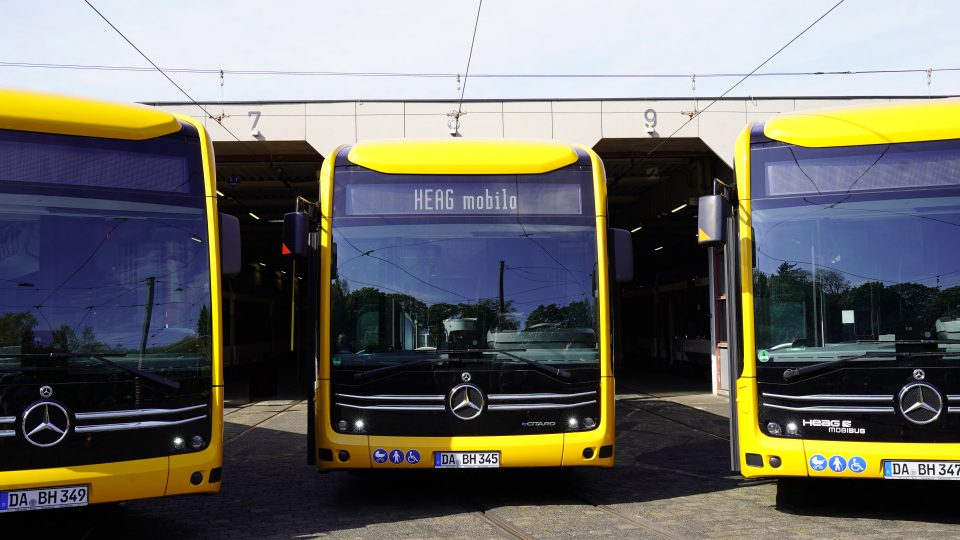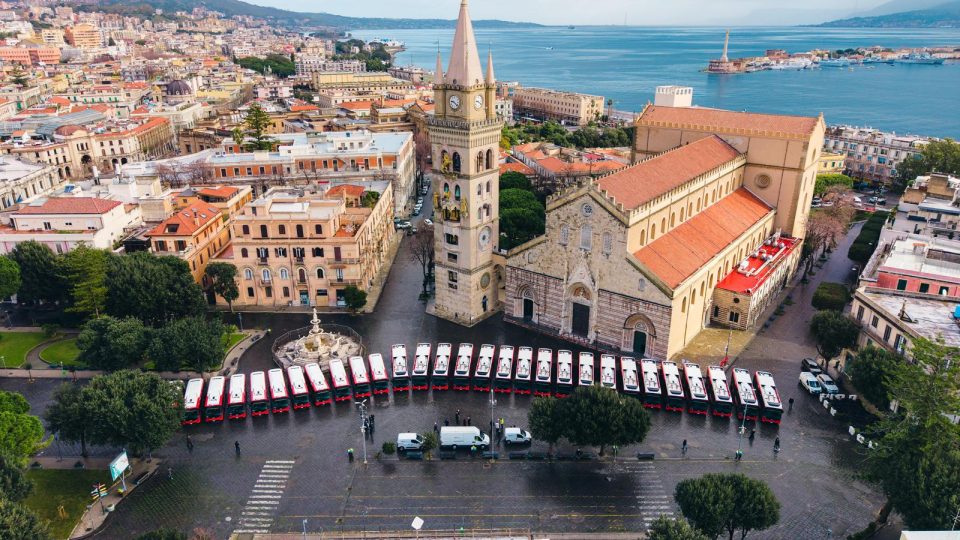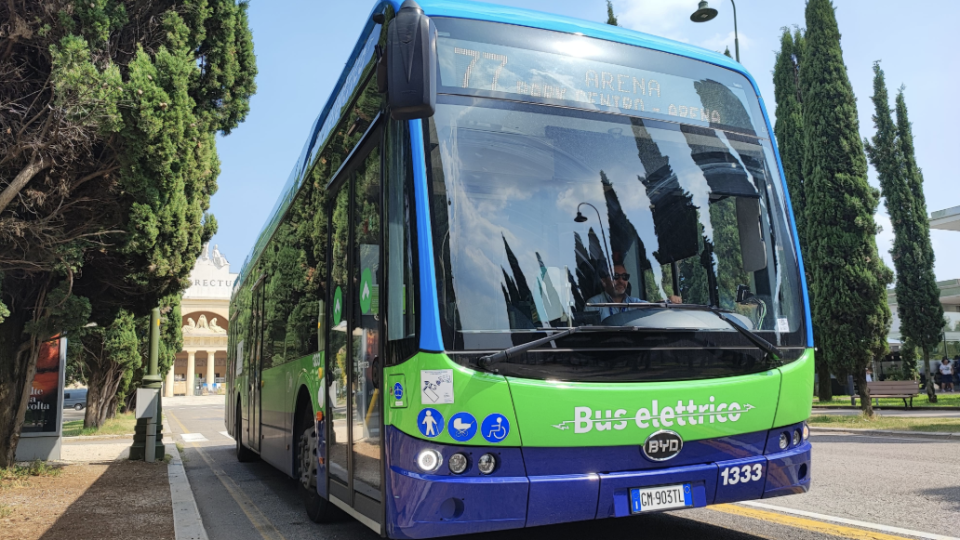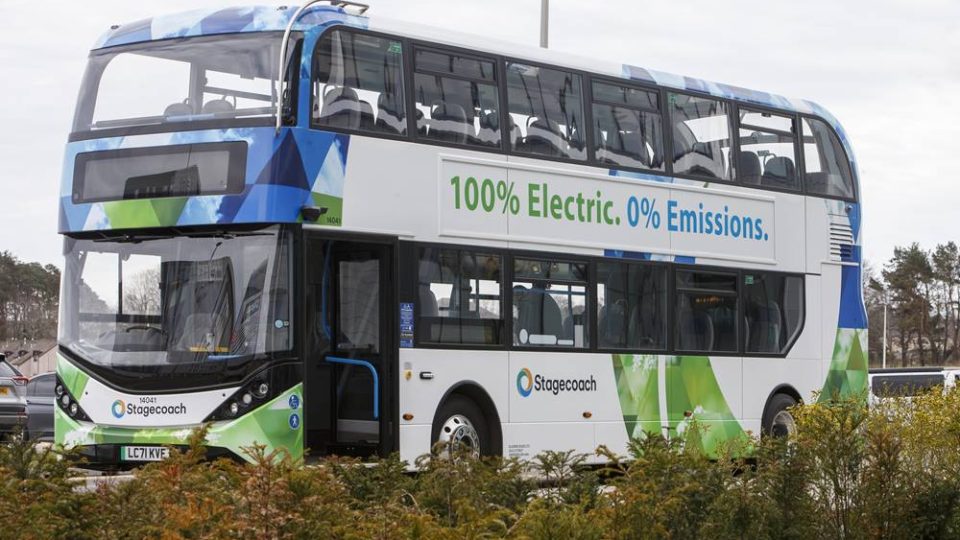Santiago de Chile gets another 300-units e-bus batch from Zhongtong
Just one month after the docking of 300 new e-buses from Zhongtong at Port of Sant Antonio, Santiago de Chile’s carrier Red Movillidad announces that another 300 BEV vehicles from the same manufacturer have joined the fleet. They’ll be part of a total of 1,800 e-buses that will bring to 68% the number of e-buses […]
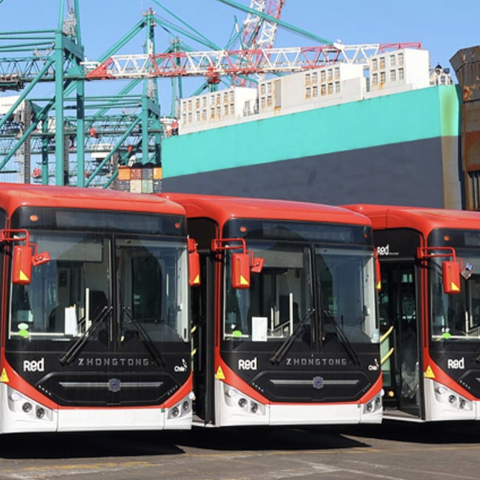
Just one month after the docking of 300 new e-buses from Zhongtong at Port of Sant Antonio, Santiago de Chile’s carrier Red Movillidad announces that another 300 BEV vehicles from the same manufacturer have joined the fleet. They’ll be part of a total of 1,800 e-buses that will bring to 68% the number of e-buses in the Chilean capital fleet.
In the meanwhile, a new Red Movilidad tender is being implemented in Santiago, which was awarded in November 2024 and corresponds to 30% of the system (more than 120 routes) and with which it hopes to improve the travel experience of those who use public transport daily.
Santiago de Chile e-bus roadmap
As of March 2025, according to the figures from E-Bus Radar, backed by ZEBRA alliance, the majority of the e-buses running in Santiago are by Foton (1,388, meaning a 54% share). BYD follows with 811, then Yutong standing at 315.
By March 2026, when the new units are fully incorporated into the system, the city will have more than 4,400 zero-emission buses, which means that two out of three will be electric. Thus, Santiago continues to consolidate itself as the country with the second most electric buses in operation outside China.
In order to implement this entire project and continue incorporating more buses under the Red standard, progress is being made in parallel in the infrastructure that supports this growth of zero-emission units. To this end, over the next few months Red Movilidad says it will add 27 new electroterminals in different parts of Santiago.
Residents of communes such as Puente Alto, Maipú, La Florida, La Pintana, Estación Central, Lo Espejo, among others, will see their bus offer renewed, which, in the opinion of the Minister of Transport and Telecommunications, Juan Carlos Muñoz, follows the path of territorial equity that has been given to public transport in the capital and throughout the country.
“This is very good news for the system and for our goal of leveling the playing field between the different communes. As a Government, we set out to bring electromobility to all sectors of the capital and we are moving forward at a steady pace with that commitment with the reinforcement of the fleet of 1,800 buses that will be incorporated over the next few months,” said Minister Juan Carlos Muñoz.
Concerning the service tendering process, the director of Metropolitan Public Transport, Paola Tapia Salas, said that “with the renewal of the fleet we will provide a better quality, more comfortable, safe and sustainable service. In this context, it should be noted that Santiago has been a pioneer in electromobility in Latin America and worldwide thanks to the public policy initiated in 2017. Among the benefits that this technology has brought are the reduction of 61% of particulate matter and 44% of noise in the Alameda axis”.



